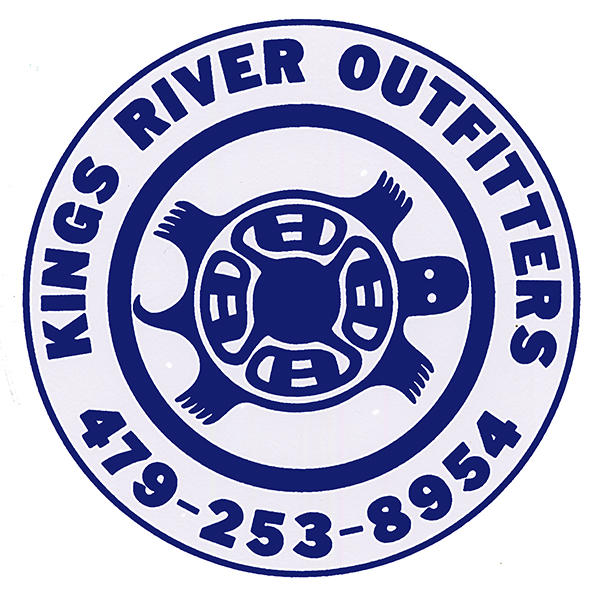Canoeing Safety Tips
Always be aware of current river conditions. Check out our Weather Page and give us a call at 479-253-8954 for the most accurate information on river levels. Flooding and cold weather are serious elements to contend with while in the wilderness.
Never float during a flood
You must be an experienced swimmer to get on the river.
Know your ability. Don't float outside of your skill level.
Wear Your Lifejacket: it is required by law that anyone under the age of 12 must wear their PFD while floating. Check out Arkansas State Laws >
Know the River:
What class of river is it? Difficulty ranges from Class I being the easiest to Class IV being the most difficult. Most rivers vary in class on different sections so know where you are floating and don’t overestimate your own ability.
Ask about specific obstacles on the section you are floating such as low water bridges that may be hard to see. The Upper Kings River has 3 lower water bridges you should be aware of when floating that section.
Give other floaters plenty of room when passing obstructions in the water. Getting in a jam may cause multiple parties to flip.
Walk Around Don’t Drown: Get out and portage your canoe around anything you aren’t sure about.
Stay away from fallen trees in the water. Getting pinned is how people drown.
Do not drink river water unless properly filtered and made safe to drink. Click here for More Information on avoiding Giardia and other diseases found in watershed areas.
Two People per canoe if there are only two seats.
Don’t take anything that can’t get lost or wet, especially car keys.
Kneel down in your canoe for better stability.
Arrange your shuttle ahead of time and know the landmarks for your takeout.
Stay sober while paddling. Intoxicated individuals are more likely to suffer from hypothermia.
Never float barefooted. You should always have adequate footwear. Water shoes like Chacos and Tevas are best. But an old pair of tennis shoes will work as well.
Prepare to get wet. Bring appropriate clothing.
Do not dive or jump into the river. There are rocks that may be hidden
Do not hang or swing on rope or vines. You could lose a finger.
Arkansas rivers are home to the poisonous Copperhead and Cottonmouth. Do not put your hands or feet where you can’t see. You could get bit.
*You alone can determine your experience level and whether or not you should take your child on the river. You are responsible for the lives of any children you bring into the wilderness.*
CAMPING ON THE RIVER
While camping on the gravel bar does the least amount of impact on the environment, make sure you select an easily accessible back door to higher ground in case of flooding. Click here to check out more tips on Leaving No Trace in the Backcountry .
Weather Awareness is a vital part of being prepared while camping in the wilderness. Getting caught in a flood or freezing temperatures is an extremely dangerous and potentially lethal mistake. Place a stick on the water’s edge and pay attention to the water level. If it begins to rise rapidly, get to higher ground well above the floodplain.
When setting up camp always look up for a dead tree branch. Don’t set your tent up where a potential snag could come down in the middle of the night.
Make sure all of your fires are out when you leave. Pack out what you bring in.
Do not camp on private property. Respect the rights of landowners when paddling. Do not engage landowners, especially if they are in possession of a firearm. Click here to learn more about Arkansas State Waterway Laws.
Do not underestimate the river. Most rivers vary in class depending on different sections and current water levels. Know where you are floating and don't overestimate your own ability.
The Upper Kings River has 3 low water bridges you should be aware of when floating the upper section.
Secure your food when not eating. Depending on where you are camping, you may even need to string up your food at night or use designated food containers if they are available. Check with your local outfitter to see what the protocol is or wildlife in the area.
Always tie your canoe up at night. You don’t want to wake up and find your means of transportation gone in the morning.
CANOEING WITH CHILDREN
It is our policy at Kings River Outfitters that Children be 6 years and older and know how to swim in order for us to put them on the water.
It is our suggestion that you should already have floated the section of river before you take children on it.
We also suggest that there is one adult per child on the float trip.
It is The Law that any child under the age of 12 must wear their PFD at all times when floating the river. Having their own perfectly fitted type 3 PFD is also recommended.

